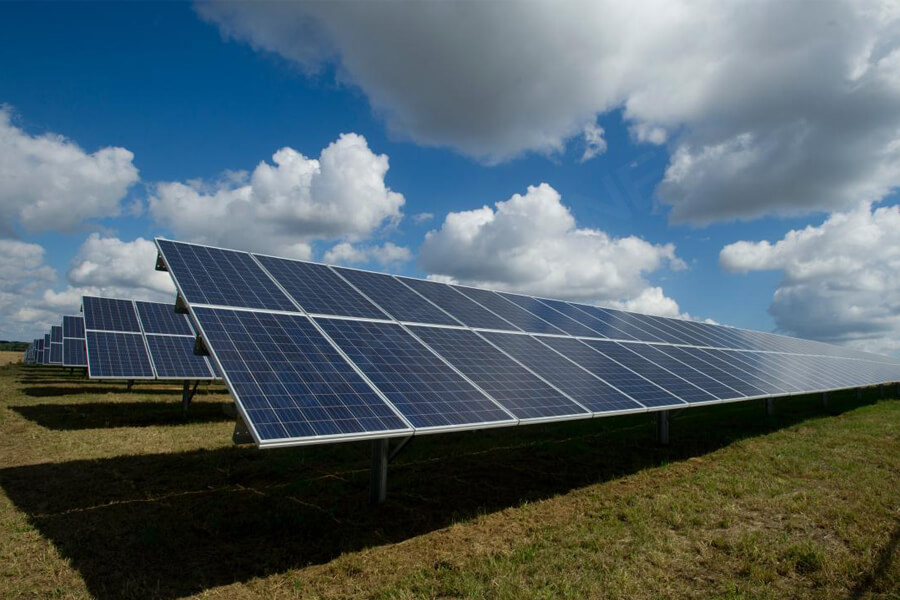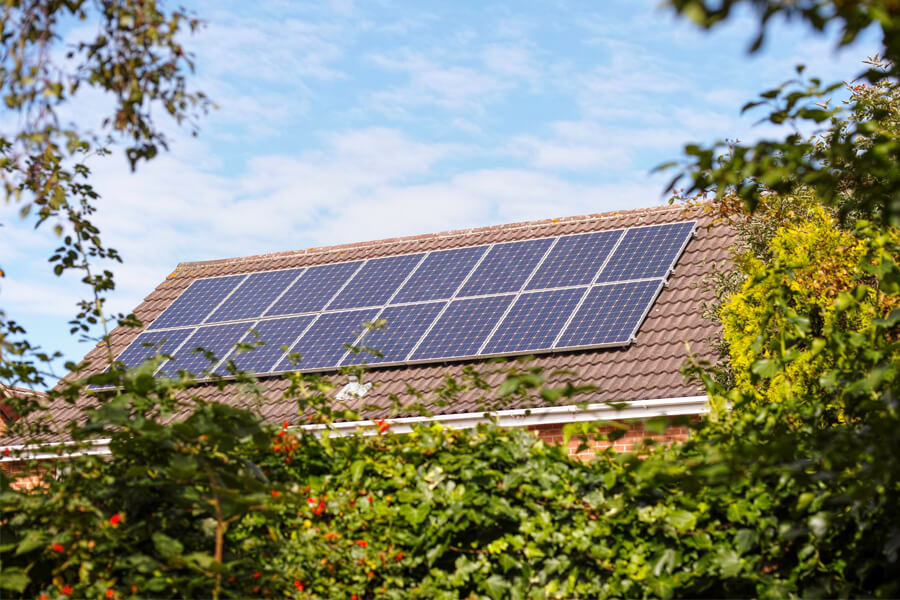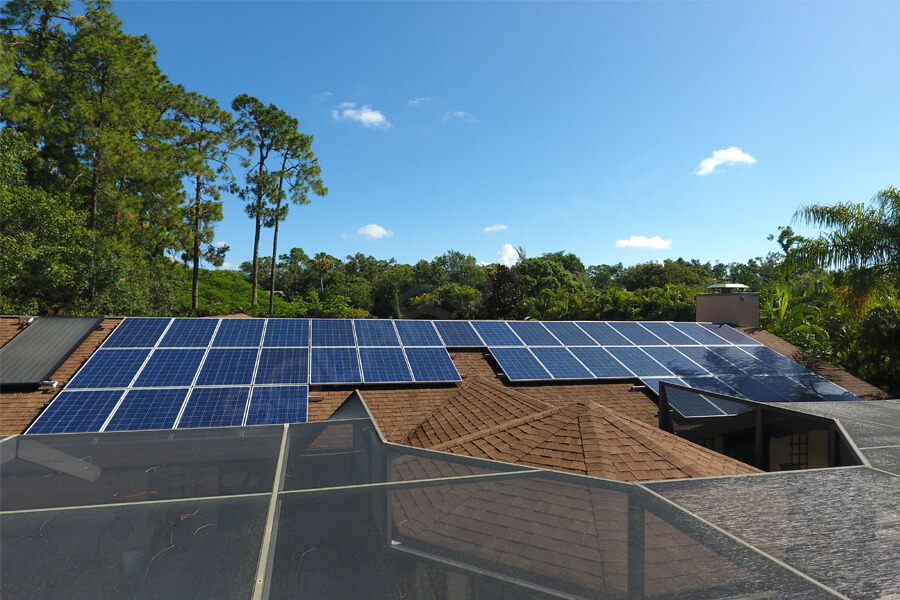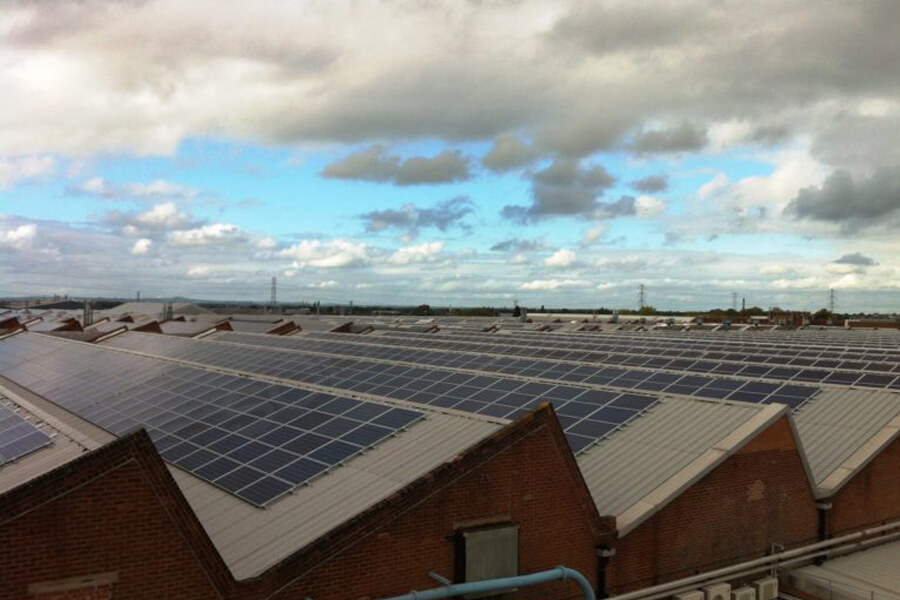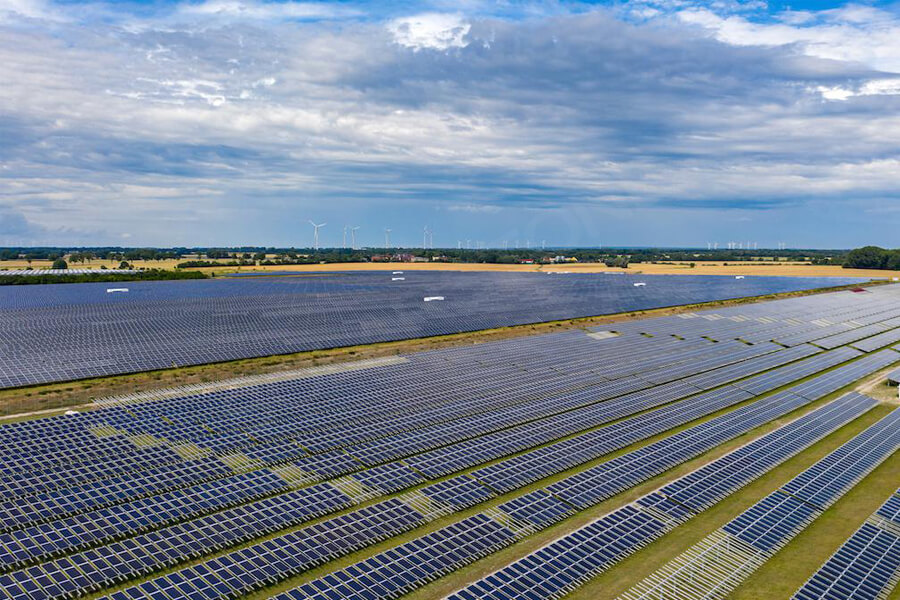The fact that shadows are detrimental to solar panels seems obvious. But how bad are they? Well, in the worst case scenario, a small shadow on one panel corner may disrupt the entire array’s production. How does the manufacturer solve the shading problem? What are the most troublesome objects that block out sunlight? In this article, we will study the shadow problem.
The shadow of a solar cell can affect the entire panel
So why do solar panels in the shade generate much less electricity? The series connection of solar cells means that the performance of one solar cell directly affects the production of the next solar cell. If one of the 36 solar cells does not receive any sunlight, the performance of the entire solar panel will decrease by 75%.
Even worse, it doesn’t stop there. Solar panels are often connected in series, which means that one shaded panel can drag down the performance of other panels. Solar panel shielding can also shorten the service life of PV modules. This is logical: If some cells do not work, others will run out faster.
Manufacturers are trying to make their solar panels shade resistant. This is why they started adding bypass diodes to the module. These devices reduce the impact of shadows on panel production. The bypass diode is expensive, so it is reflected in the price of the panel itself.
Generally, there are 2-3 bypass diodes in the junction box of a panel. They divided the panel into multiple parts. If the solar cells in one sector are completely shielded, the bypass diode does not allow it to affect the cells in the other sectors.
For example, if there are three bypass diodes in a component and a battery is in shadow, the performance of the battery panel will decrease by 33%. However, cells are often not completely shielded, so their energy production is not offset, but reduced.
Blocking objects from direct sunlight is a real hassle
Panels utilize direct and indirect sunlight: The irradiance reflected by clouds, snow, or water on the panels also helps them generate energy. Objects away from the module primarily block this indirect irradiance. They have little impact on the production of solar panels. The real trouble comes from objects that directly block the sunlight from the panel.
In most cases, the panel is masked by the following:
Trees. If the trees are yours, pruning them may help.
Cloud. In fact, the cloud is not as serious as you think. Although they do cast shadows on your panel, sunlight still penetrates them. Even on cloudy days, the panel can sense solar radiation invisible to the naked eye. Overall, clouds can reduce panel production by 25-40%.
The panels can mask each other. This is usually a ground mounted issue. If it is possible to reduce the inclination, it is best to do so. The impact of imperfect angles on system efficiency is far less than solar panel shading.
Other buildings and your own roof. The way to avoid this situation is to plan the location of the panel before installation.
Plan your solar panel system in advance
To avoid shadows, you should carefully select a location for your system before installing the panel. The so-called shadow analysis can be performed by solar experts with the help of special tools and software.
One of the simplest methods you can use is called “1-3”. For example, if something is 10 feet taller than your panel, you want it to be three times farther away from your array – 30 feet each.
It is recommended to install the module horizontally rather than vertically. The reason for this is the way the bypass diodes divide the panel into sectors.
For example, in winter, snow can accumulate on the top of a solar panel and eventually slide down to the bottom half. If the panel is installed vertically, snow can block sunlight from the batteries in all areas, greatly reducing the power output of the panel.
If the panel is installed horizontally, only the lower part is covered, and half of the panel is still working. Some experts claim that this positioning can also reduce the damage caused by natural shadows.
Solar Panel brand and model are important
Some solar panel manufacturers handle shadow issues better than others. The ability of photovoltaic modules to perform well in weak light conditions and shadows has become one of the selling points.
If you know in advance that your panels are likely to be obscured – for example, there are many tall buildings and trees around them – consider using thin film or amorphous panels, as they are less affected by shadows.
During the standard 25 year life of a solar panel, many things can happen around you. Trees may grow and tall buildings may appear nearby. If your panel initially had no shadows and now there is always something blocking the sun, you need to take countermeasures.
Micro inverters handle shadows better than string inverters
Residential solar panel systems are typically equipped with inverters that convert direct current from solar panels to alternating current. The most popular type is a series inverter. However, when a panel in a string is masked, its production can be greatly affected. The solution to this problem is to use a micro inverter.
The micro inverter is located at the top of each panel and converts DC power to AC power on site. This way, if one panel is obscured, at least it does not affect other panels in the array. Because arrays require multiple micro inverters, they will ultimately be more expensive than string inverters, but your system will become more efficient.
Another option you can use is the power optimizer. They limit the impact of shadows to a panel that is affected by the shadows. However, they do not convert current on their own, so you need to use them with a series inverter.
Finally, consider connecting solar panels in parallel. This way, the performance of one panel will not affect other panels. Remember that this type of connection voltage remains low, but the current across all panels is cumulative.


